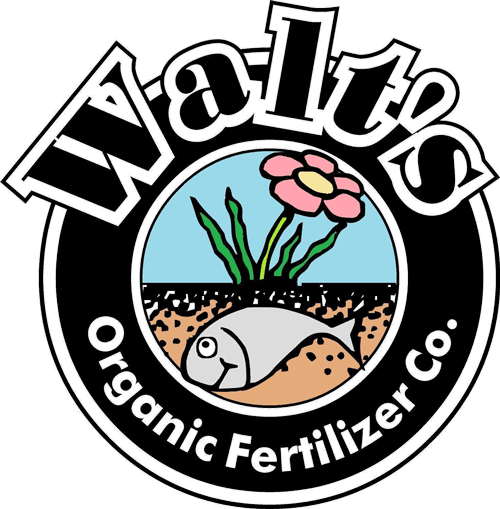
This is a question that comes up a fair amount here at Walt’s.
‘Why use organic fertilizer on my lawn (or any ornamental for that matter). I’m not eating the grass so it doesn’t really matter right?’
Not exactly.
organic fertilizer acts like a key to unlock your soil’s potential
Organic fertilizers (like Walt’s Organic Garden Blend 6-2-5) have a small amount of immediately available nutrients the grass can absorb for a quick boost. But the bulk of the nutrients are in insoluble forms that require microorganisms to break them down into plant food (slow release). When we nourish these microorganisms, we increase soil fertility. The goal is healthy living soil.
All soils contain virtually limitless nutrients for plant growth. The problem is that they are not usually in forms the plants can absorb. When we stimulate life in the soil, the microorganisms will feed on the nutrient-rich amendment and the surrounding soil particles releasing other preexisting nutrients in forms your lawn can absorb…so organic fertilizer acts like a key to unlock your soil’s potential.
Lawns growing in healthy living soil are more tolerant of weather extremes (slower to go dormant in the summer and faster to thaw out after a freeze). They require less water.
Over time, as you build healthy soil, you will require less fertilizer to achieve the same results, which reduces the potential for run off of excess nutrients into our waterways.
For lawn weeds, we incorporate Corn Gluten Meal into our fertilizer rotation to get the added benefit of pre-emergent weed control at seasonally appropriate times. Here in Seattle, we especially target Corn Gluten Meal applications around peak germination conditions (for example in February when the Forsythia starts to bloom and again in August).
Synthetic chemical fertilizers and herbicides are, in our 20 years of experience, unnecessary and may actually do more harm than good in the long run. Chemical NPK fertilizers do tend to cost less per pound than quality organic fertilizers. However, they are basically junk food as far as soil quality is concerned.
